Welcome back to our retrospective on Andrzej Sapkowski’s The Witcher Saga. This series is being done as a collaboration series, with Kyle having read The Witcher before and Claudia being a newcomer to the series. This time, they are covering Baptism of Fire, the fifth book in the saga. Here you will find their analysis of the major themes, character arcs, and overall plot.
If you missed the previous parts of Kyle and Claudia’s retrospective, we’ve got your back. Here is our analysis of The Last Wish, Sword of Destiny, Blood of Elves, and Time of Contempt.
Originally posted June 8, 2019
Yennefer’s Arc
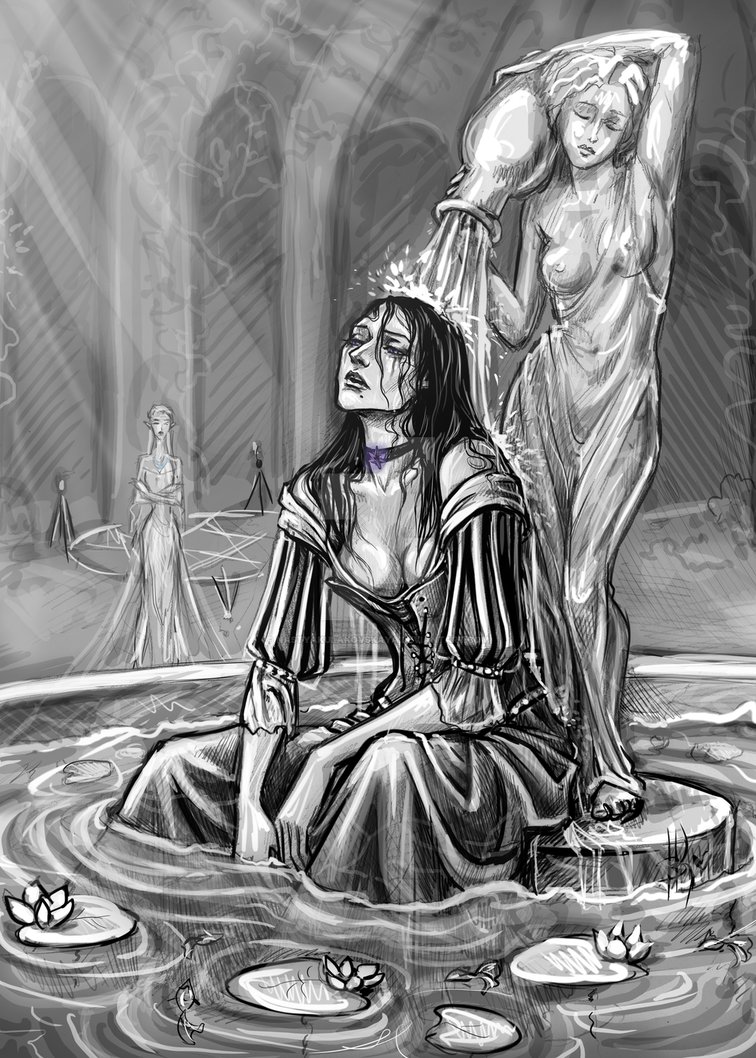
Claudia’s Analysis
Disappointingly, Yennefer is barely in this book. We find out at last that she is alive in what feels like over half way through the story. Predictably, she has little to no time for Philippa or the Lodge, or any of the nonsense coming her way. Yennefer runs off instead at the first chance she gets.
While I agree with her actions, I do think her motivations suffer for having been left out of this book. Yennefer has a relationship to Ciri, but it doesn’t feel nearly as strong or old as Geralt’s. This book also has Triss ruminate on the fact she considers Ciri a “little sister” which is not the vibe I got at all from her, but it seems inconsistent female characters are a bit of a habit in these stories.
I’m going to leave it off here, as I don’t think there is enough material with Yen in it to warrant digging deeper into the character this book.
Kyle’s Analysis
Yen isn’t in Baptism of Fire as much as she has been in other books in The Witcher Saga. We find out that she was compressed into a jade figurine by Francesca Findabair and has now been released. As payment for being released she is basically forced to bend to Francesca’s will and attend the very first meeting of the Lodge of Sorceresses. But the thing about that is everyone expects her to just go along with it. This truly shows just out of touch the rest of the sorceresses are from Yen and the larger world.
Yen couldn’t give a damn about preserving the political landscape that Philippa Eilhart wishes to force upon the world. Nor does she give a damn about ensuring that magic is kept at the top of the food chain. She cares about two people, Geralt and Ciri. And to make matters worse, Philippa has decided that she has plans for Ciri that Yen does not agree with. So, she runs, teleporting away in a desperate attempt to find her daughter by any means necessary. Yen’s overall arc has become taking on the role of the protective mother.
Geralt’s Arc
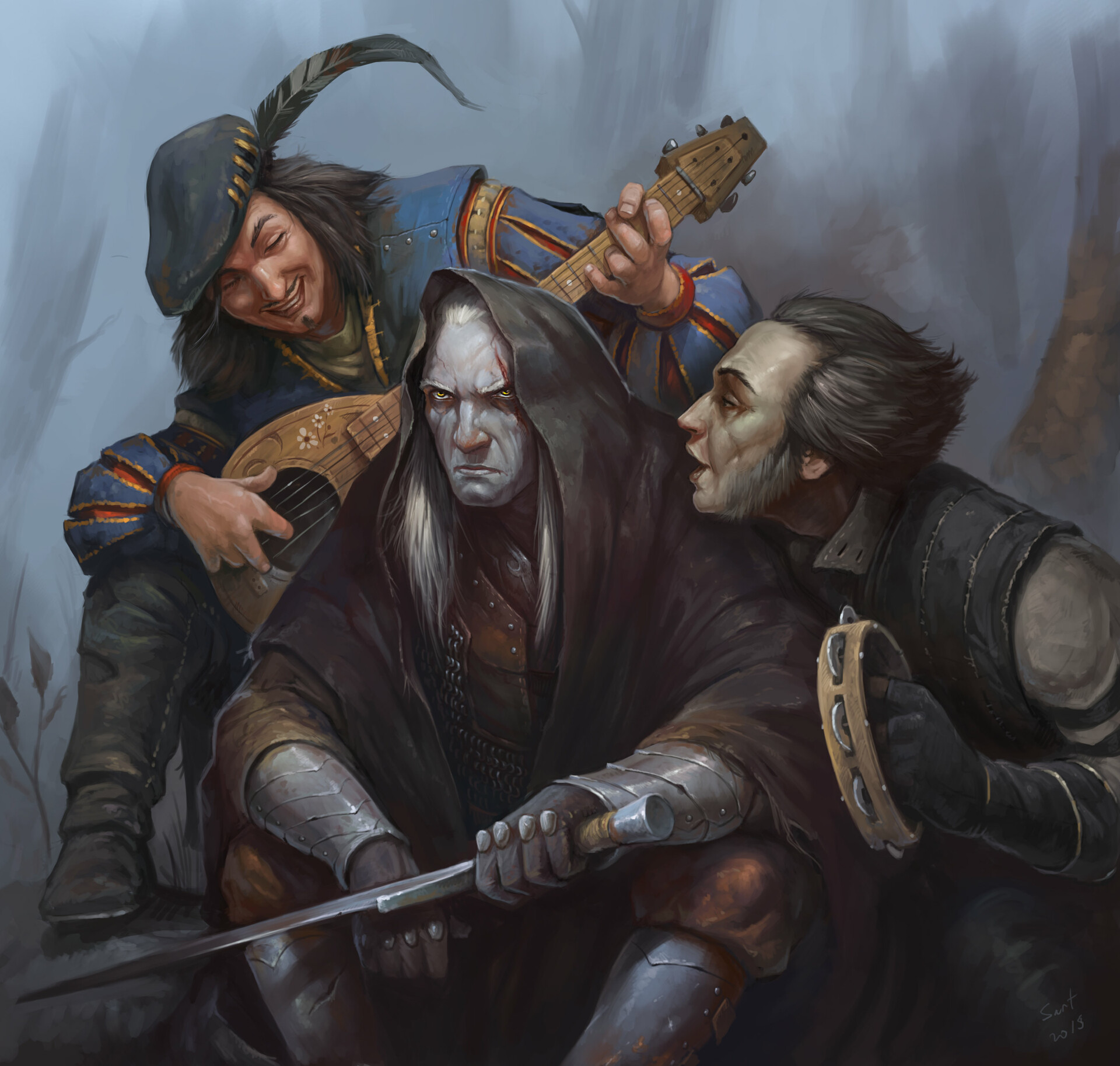
Claudia’s Analysis
Geralt is the heart and soul of the series once again with this book. While the previous books certainly focused on him, the pacing of this story was far superior. With the exception of the ending, we spend a reasonable, well paced amount of time, walking in Geralt’s shoes, only flashing briefly to the goings ons of other characters.
And this is the story wherein Geralt, the ineffectual loner, finally picks up his merry band of travelers which makes him all the stronger. His personality is much easier to bear when brought up against an entire party of people who are equally dangerous and treat him more like a grumpy old man than a monster.
And Geralt, despite his protest, goes along with it. He is not the single minded witcher he claims to be and his friends, as that’s what they are, take full advantage of this.
It is also through Geralt, and by extension, his party, that we first hand see the atrocities of war. I speak more on this in the Q&A section, but it is incredibly meaningful to me that so much of the violence of this book is witnessed by the party as they trail along behind an army. It feels real, and it paints Geralt’s quest (which is removed from politics in motivation, but ultimately will be politically complicated) into a landscape of war that didn’t seem real or relevant in the previous books.
Kyle’s Analysis
Geralt gets the majority of the focus in Baptism of Fire and as a result, has the most growth of the trio. I have spoken several times about how Geralt loves to think of himself as the loner. The man who wanders from town to town, doing a job and then leaving. No friends, no family, no real life to speak of. Just the job, just the solitude that comes from wandering the Path of a Witcher. But as we well know at this point, this couldn’t be further from the truth.
Ciri and Yen are the only things he cares about and even thinks about. As we see at the beginning, news of their potential deaths saddens him greatly. But he keeps friends by his side, no matter how many times he tries to push them away. Dandelion will always have his back, that’s the thing about him. You only truly know who your friends are when the chips are down, and they still have your back no matter what. Milva, while getting off to a rough start, bonds with him in a way that only someone willing to “mother” Geralt and tell him the brass tax would.
Regis is the voice of reason that Geralt desperately needs again, and the irony of course is the fact that he is a monster that Geralt is sworn to kill. Cahir becomes an unlikely ally as they are both chasing the very same person that matters most to them. And Zoltan represents the kind-hearted nature of Geralt that he wishes he displayed a bit more. Each other these people come to Geralt in his time of need and call him out on his bullshit. He, despite his protests, is grieving and lost. He needs people to guide him, and always has required that.
Ciri’s Arc
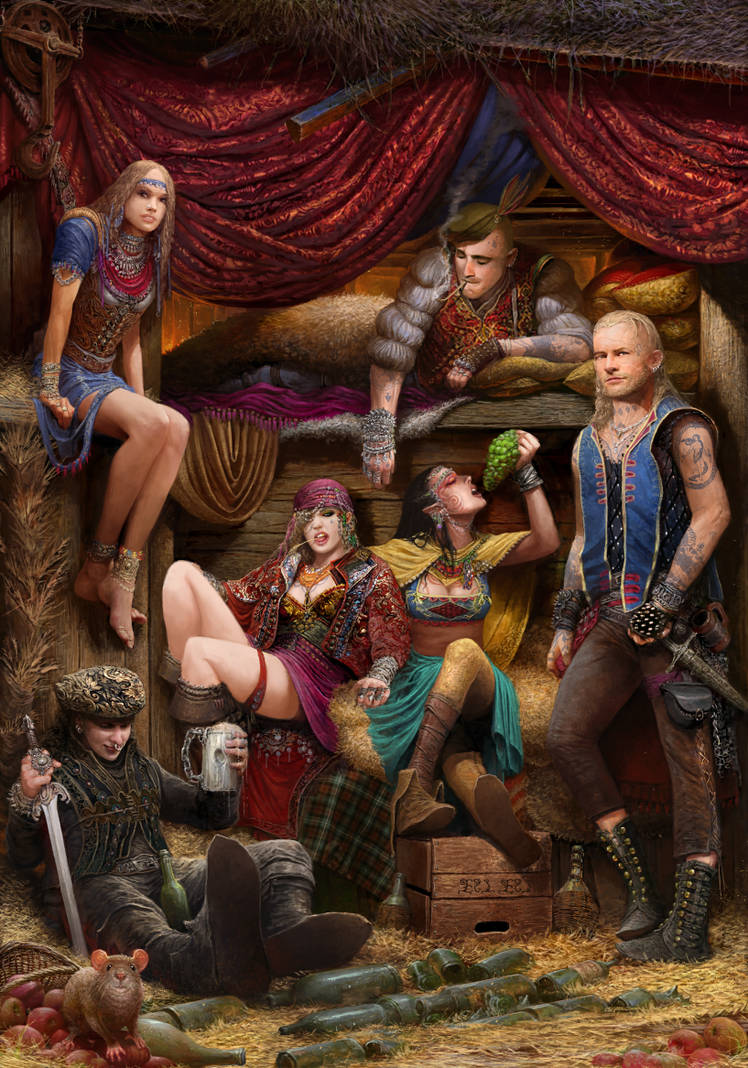
Claudia’s Analysis
We get a few glimpses of Ciri. In fact, much like Yennefer there isn’t much of an arc for her in this book. Instead what we get is a pulse taking. Every so often the book returns to her to show us how far she is from home. To remind us of who it is Geralt is saving.
Kyle and I differ in that I do not see any of Ciri’s actions as reprehensible. I do not consider her fallen or corrupted. She is doing what she must to survive, and sometimes to survive we become terrible things. I want her to be rescued. I want her to be found, taken away from the Rats, her rapist, and this life.
Perhaps it is the writing, or perhaps just a difference in perspective, but Ciri is still the same girl to me she was before. Tougher. A little more worldly. But we all grow up. Ciri just had to do it faster than some others.
Kyle’s Analysis
Ciri continues her downward spiral after her breaking in Time of Contempt. In Baptism of Fire, Ciri has truly become one with the Rats, becoming the now infamous bandit Falka. Her relationship with Mistle has evolved from her being raped to something closely resembling Stockholm Syndrome. She wants nothing more than to be around her “lover” and do whatever she wants. It’s a horrifying situation and things only get worse for her.
The most telling scene in this book, that I view as a mission statement by Sapkowski about how he is handling the chosen one trope in The Witcher Saga, can be best summed up with the words cotton candy. Ciri and Mistle, at a fairground, decide to go get something sweet to eat. They are approached by a man who makes homophobic threats to them and stands in Ciri’s way of her cotton candy. Ciri, without a second thought, kills the man and steps over the now congealing pool of blood to get her cotton candy. This is a far cry from the girl that nearly puked upon seeing someone killed in front of her in the last book. Having gotten what she wants, she embraces Mistle, without a care in the world for anything or anyone else. Ciri, having lost everything, has abandoned her destiny and her better nature that she once had as a kind, innocent, young girl. It is all about what she wants, not what others want for her.
Overarching Plot of Baptism of Fire
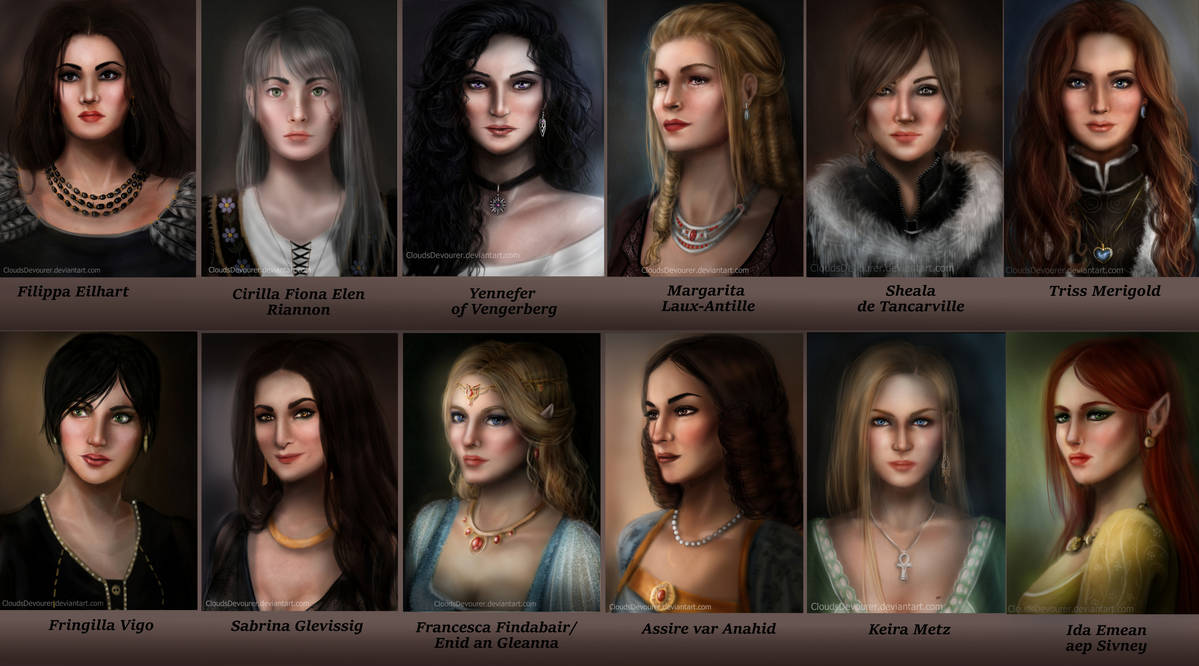
Claudia’s Analysis
This book is absolutely my favorite thus far. It is the assembly of the band of heroes. Granted, normally the book following the assembly is my favorite, but after the last two books being oddly paced, weirdly removed from tropes, and overly focused on politics I did not care about, to see Sapkowski return to something recognizable was a treat.
He does not subvert or play with the tropes too much, keeping some distance from deconstruction, but he makes excellent use of his characters. In this book, finally, someone other than an insufferable enemy starts engaging Geralt in philosophical discussions and it makes it all the more readable.
We also receive confirmation that most monsters, if not all, are distinct races and the future reveal of the multiverse. I have not done much reading into this to prevent being completely spoiled, but I felt it worth mentioning.
Kyle’s Analysis
The bulk of this book has more of the feel of the short stories than the rest of The Witcher Saga. As a result, most of the book is focused on Geralt’s travel across war torn lands with her strange but wonderful little band of would-be heroes. It got a distinctly Dungeons & Dragons feel and is perhaps the most fun you will have reading a book from The Witcher Saga. Everyone I have ever talked to loves the Mandrake chapter for this exact reason.
However, the overall plot moves forward as well. Phillipa’s reason for instigating the Thanedd Coup is revealed. She has taken steps to preserve her power above all others. Forming the Lodge of Sorceresses under the guise of wanting to ensure magic is preserved is a laughable excuse, but very Phillipa. She even goes as far as to use the excuse of only allowing women, as though she is making a socio-political statement, even though it’s all just to enable her to do what she wants. Phillipa is many things, but first and foremost, she wants to be at the top of the totem pole.
During Geralt’s travels, we get to see the effects of the Second Nilfgaardian War on the world. Many places are being ravaged, not just by the Nilfgaardians, but by the dregs of humanity as well. Hope is being driven out everyone. As it is, Queen Meve of Lyria and Rivia is fighting a guerrilla war with a small and continually diminishing army. To say that things are not going well is putting it mildly. But we the reader are put at a distance from of all of this, because Geralt is distant from it. All he wants is Ciri back and despite being the instigator of all this mess, she has nothing to do with it anymore.
Outsiders

Claudia’s Analysis
One of the things I love about fiction is the ability to convey themes and ideas through the use of characters. We are, all, ultimately the same, and fiction lets us amplify that in ways that are interesting to read and think about. In many stories the Hero and surrounding characters all embody different interpretations of the thematic core of the story. The “winner” of the story is often the moral, the correct theme (but not always) and the antagonist often embodies an opposing viewpoint to the hero.
I talk about this because ensemble stories with main characters are an excellent space to explore this idea. Geralt’s party in particular deals with the concept and idea of being an outsider. In this particular case, specifically an outsider to society at large. Each person in the party embodies this in their own way, sometimes racially (Milva, Regis), sometimes through birth or circumstance (Cahir, Geralt in some ways) and in Dandelion’s case it is absolutely by choice.
This excellent use of outsiders making up Geralt’s party means Geralt cannot look at any of his travelling companions without his own station in society being in part reflected back at him. This idea can be extended, of course. Ciri is alienated with the Rats with her violence, and the Sorceresses were always outsiders, but it still is predominant within the party and allows for far more variety than before. Each of these people makes the world feel more lived in, if only because there are so many ways to be excluded from it.
Kyle’s Analysis
From the very first book in The Witcher Saga, there has been a sense of the story focusing on someone outside of normal society. Geralt is a mutant designed for the sole purpose of killing monsters. Most people view him as a monster himself, which leaves him ostracized by everyone except those in a similar place in their lives.
In Baptism of Fire this theme is taken a step further by introducing Geralt’s party. Each and every one of them is an outsider from their respective cultures. Milva is a noble but chooses to live in the wilds and live among the elves. She works with the dryads only out of debt but is not one herself. Cahir is the son of a noble who is also a seneschal to Emhyr. And after being personally assigned to kidnap Ciri, has turned against his Nilfgaardian brethren to find the woman he sees in his dreams. Regis is a vampire that acts very differently to other monsters we and Geralt have met. In his youth he was even shy around vampire girls and thus got addicted to drinking blood as it gave him confidence. Dandelion is a bard that many view as a pest and nuisance despite his poems and ballads being well-received.
Geralt, despite claiming to be a loner, needs companionship. It only makes sense that those he chooses to spend his time with would be in many ways similar to him. Outsiders trying to make their way through a society that has no wish for them to exist. He desires to be surrounded by people that understand him. I mean, it was this fact about Yen that made him fall in love with her.
The Breaking of Preconceptions and Biases
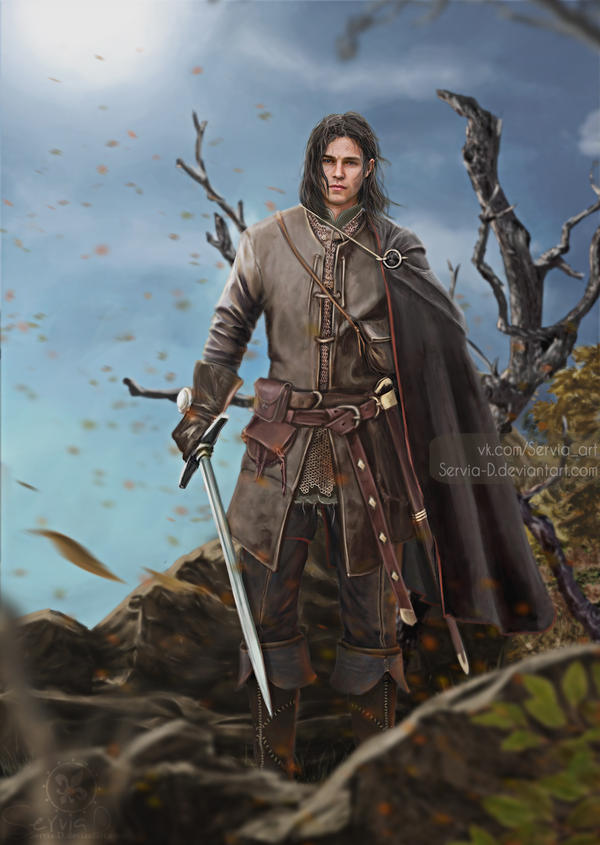
Claudia’s Analysis
This piece of the story is the natural extension of the first part (“Outsiders”). If your party is composed of outcasts, then for them to operate as a unit will require an amount of trust that cannot be created without at least leaving behind some of your preconceptions.
With both a monster and a Nilfgaardian in the party, it’s almost laughable how easily the rest of the group come to trust and respect them both. It’s well earned. Both Regis and Cahir put life and limb on the line for the group, but still notable in that Geralt, sworn grumpy old man, cannot bring himself to quite admit how much he trusts them.
Made funnier, of course, by the fact that since the short stories, Geralt has suffered from the preconceived notion that Witchers do not have emotions. This is blatantly false and has hurt his relationships more than once, but then it is perhaps fitting that he winds up with a group dead set on ignoring what he says. What he says is often idiotic, and very set in his ways, and not at all reflective of how he feels.
Kyle’s Analysis
Geralt’s travelling companions are not only composed of some of the best characters in The Witcher Saga, they also represent one of the major themes of Baptism of Fire. Part of Geralt’s arc as a character is learning to accept help from others. But he has been around the bend too often and is not quick to trust in that regard. He’s a witcher, a mutant designed for one purpose only, to kill monsters. And then, one day, out of nowhere, a kind doctor joins his party. Unbeknownst to Geralt, Regis is a vampire, and no ordinary one either.
Regis is used by Sapkowski to make fun of traditional vampire clichés while also being my second favourite character in The Witcher Saga. He is the measured voice of reason that Geralt needs, but Geralt is stubborn, always has been. As far as he is considered, Regis is a monster that deserves to be killed. But before he found out that Regis was a vampire, he had grown to appreciate his counsel. Which is why Geralt never says the price that would have to be paid in order for him to kill Regis. It’s not about the danger involved, but rather Geralt’s excuse to not having to kill a friend.
Cahir is a Nilfgaardian soldier and worst of all the man that has been chasing Ciri in both reality and in her nightmares. Geralt hates him with a passionate rage that Geralt rarely ever demonstrates unless it’s in regard to Ciri. After the revelation in Time of Contempt that Cahir was responsible for saving Ciri in Cintra, he is slowly building up a sense of respect from Geralt. Once they realize that they have more in common than originally believed, Geralt accepts him into his band of misfits.
Conclusion of the Retrospective On Baptism of Fire
Thank you for joining us once again on the journey to analyse The Witcher Saga. The next part of our retrospective will be a Q&A session between Kyle and Claudia about Baptism of Fire which can be found here.
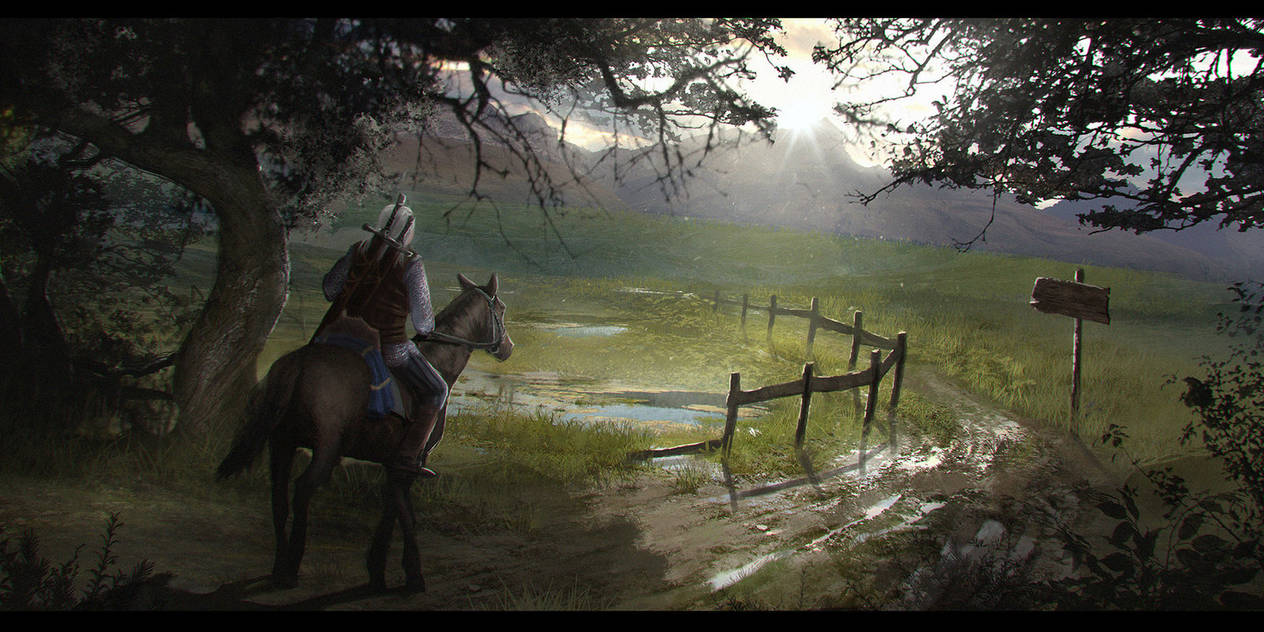
Leave a comment